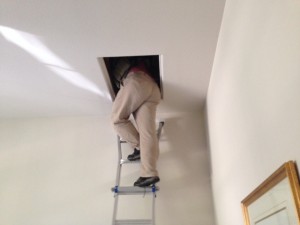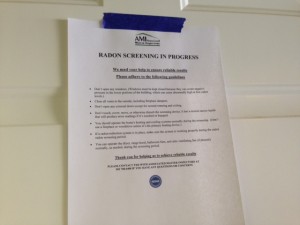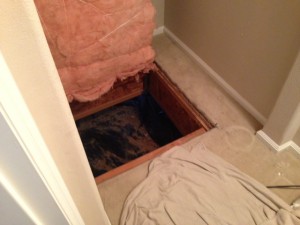You’ve hired a great Realtor and accepted an offer to sell your home. You know your house. You’ve taken care of it, but it’s not perfect. What is going to turn up in the home inspection? This has got to be one of the most agonizing parts of the selling process. Here are some tips and pointers to help know what to expect.
 Get your house ready
Get your house ready
The inspector is going to be going on the roof, opening and closing every door and window, and thoroughly investigating the entire house. You need to make his job possible by creating easy access to the attic hatch and the crawl space entrance. These are often in closets that are full of coats, luggage, and assorted personal items. Find these entries and clear out the path to the opening. You can just set things in the adjoining room and then put it all back when the inspection is over. Likewise, the inspector needs to get to the electrical panel. If it’s behind stacked boxes in the garage, it’s a problem. Move those boxes, shelves and toys so that the inspector does not have to.
 If there is going to be a radon test, you need to maintain “closed house” conditions for 12 hours prior to the test starting. You can come and go, just don’t leave doors or windows standing open. These conditions must be maintained during the duration of the test (usually 48 hours). This can be hard in the summer, but you must abide by the guidelines or the test will be defective.
If there is going to be a radon test, you need to maintain “closed house” conditions for 12 hours prior to the test starting. You can come and go, just don’t leave doors or windows standing open. These conditions must be maintained during the duration of the test (usually 48 hours). This can be hard in the summer, but you must abide by the guidelines or the test will be defective.
Stay Away
Home inspections will last anywhere from 2-5 hours depending upon the inspector and the inspections being done. It’s not uncommon for multiple inspections to be done including sewer scopes and air samples. So be patient. Please don’t be circling the block. This creates pressure upon the buyer and the buyer’s Realtor to hurry to conclusion. This is not fair to the buyer who has an agreement that allows him the opportunity to do his own investigation.
There are two problems that occur if you are present at your buyer’s home inspection. First, the buyer feels awkward. The inspection will specifically be searching for defects. Finding them creates conversation that the buyer simply prefers you not hear. Second, you will put yourself in a position of being asked questions. A person selling a home wants the inspection to go well. While trying to be helpful, you may actually dig your self into a hole by suggesting you’ll take care of issues when you haven’t seen the full list of demands, or worse, representing knowledge you don’t really have. Your roof may not have ever leaked, but do you really know if it’s been flashed correctly? Stay away and stay out of trouble.
So don’t panic, all will be well. Just know what to expect and do your part to get your house ready and accessible.
Thanks for reading,
Dianne

 Be Reasonable
Be Reasonable